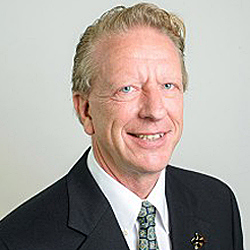Healthcare MBA Faculty Profiles
Get Program Details
This will only take a moment.
Step 1 of 2

Dr. Paul M. Swiercz
Professor Emeritus of Management
Dr. Paul Michael Swiercz is a professor emeritus of management at the George Washington University School of Business, where he has distinguished himself as a researcher, educator and consultant. With more than 35 refereed research articles published, Dr. Swiercz's case studies on The Home Depot and Delta Air Lines have been featured in six best-selling strategy textbooks. His award-winning case study "Food Lion vs. the UFCW: Time for a Change?" earned the 2002 Academy of Management’s Best Case Award.
Internationally recognized for his contributions, Dr. Swiercz has taught and presented seminars across the globe, including in Greece, Cyprus, France, Germany, Trinidad, and Brazil. He has served as editor of Human Resource Planning and directed the Strategic HRM Partnership Project at GW. Dr. Swiercz is also the creator of SWIF Learning, a case writing methodology, and co-developer of the Cognitive Intrusion of Work Scale (CIW), highlighting his innovative contributions to management education.
Throughout his consulting career, Dr. Swiercz has directed workshops for organizations such as AT&T, General Motors, Telecom Egypt and the Pentagon. He is the founder and principal in the firm Executive Selection and Development International (ESDI) and developer of the workshop Strategic Business Thinking: A Skill Building Workshop for Competitive Thinkers.
